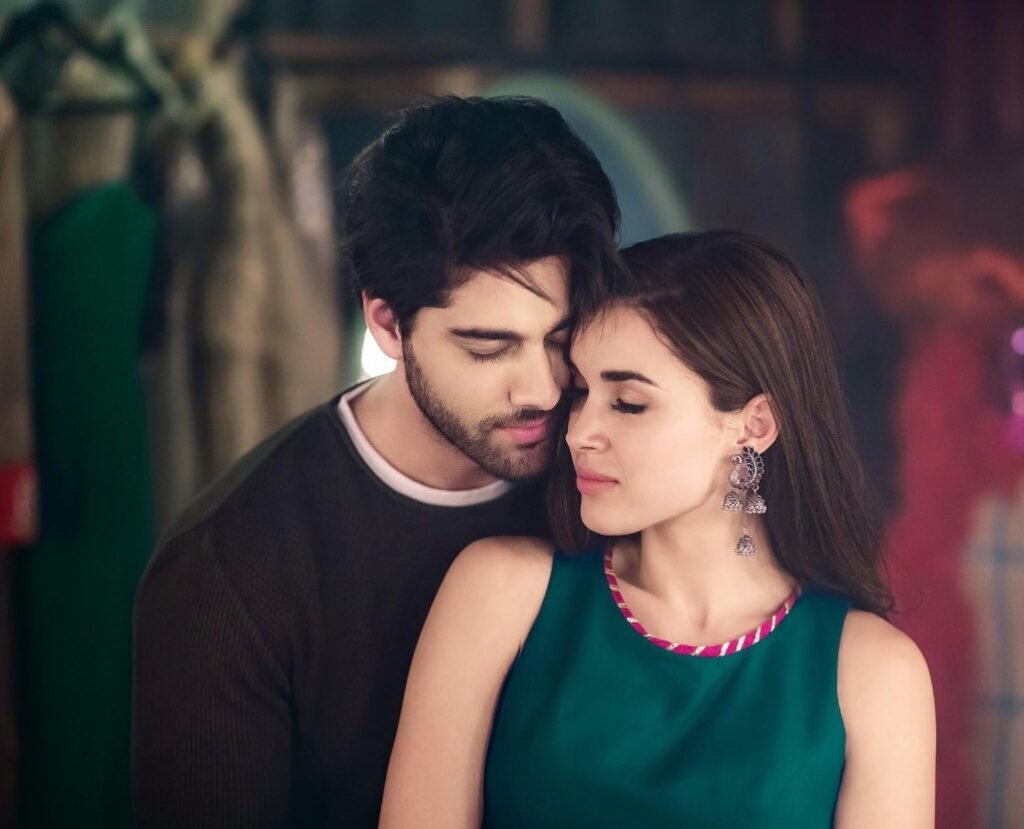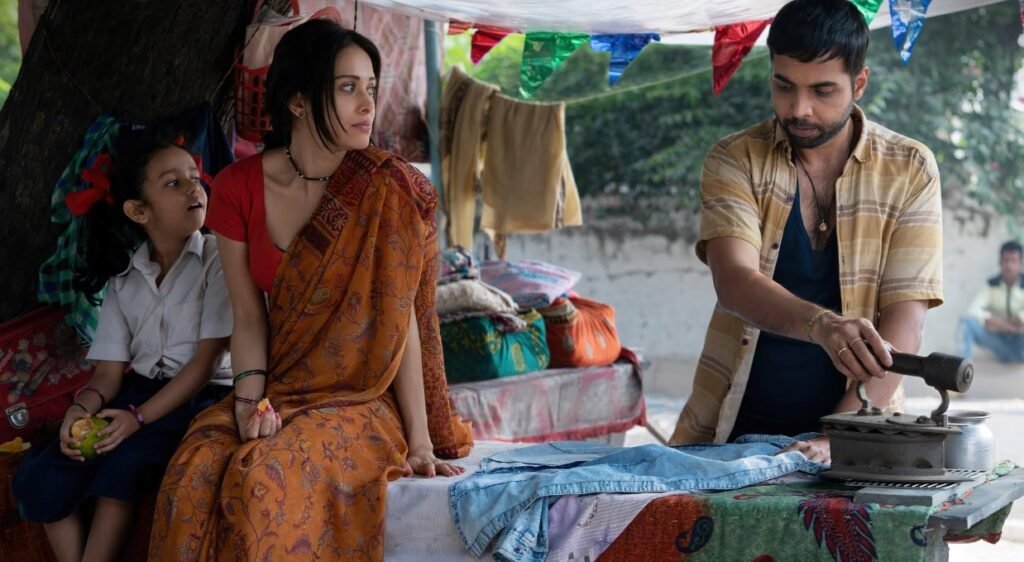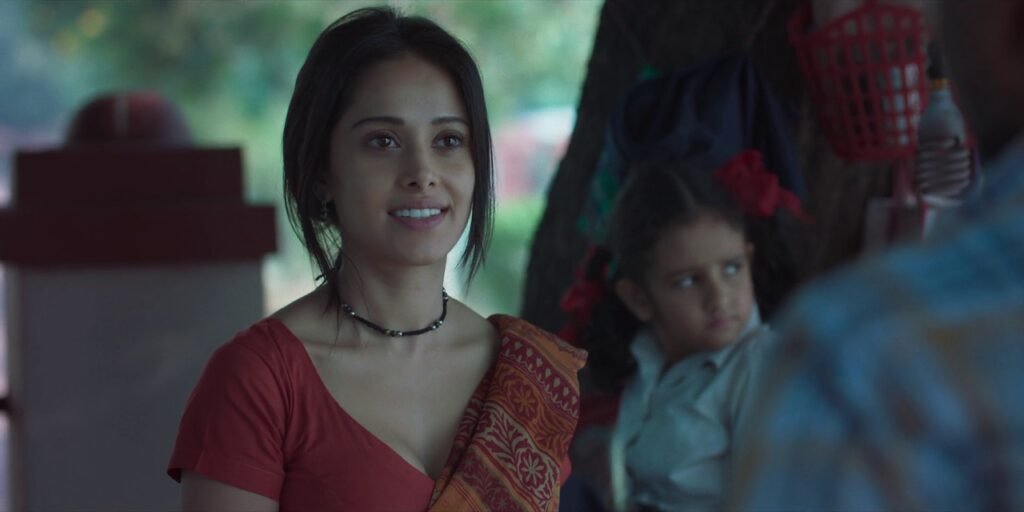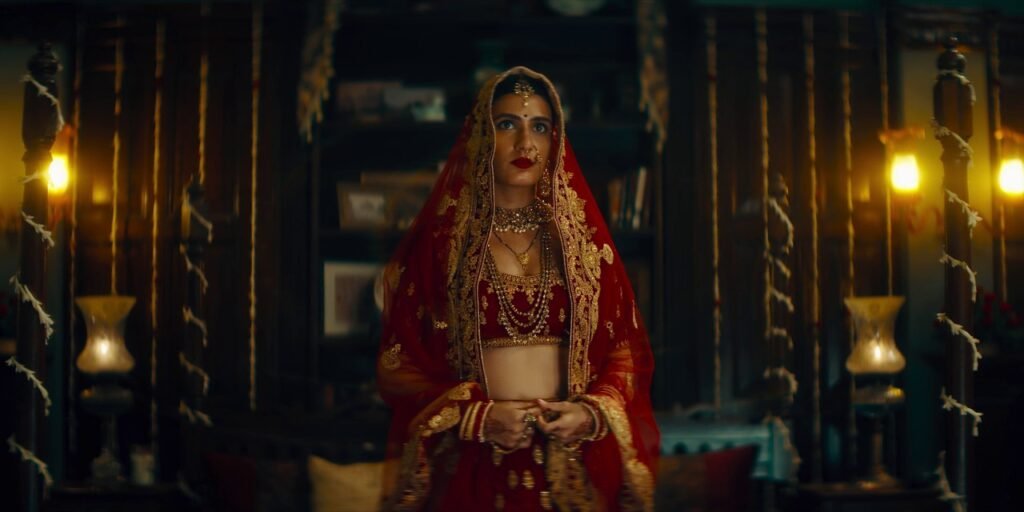“Ajeeb Daastaans”, true to its title, heavily relies on dramatic reveals and shock value across its four stories. The anthology kicks off with “Majnu”, directed by Shashank Khaitan, where a youthful and sexually liberated Lipakshi finds herself in a loveless marriage with local thug Babloo bhaiya. Her encounter with MBA graduate Raj Kumar sparks a passionate affair, promising liberation from their respective confines. However, Khaitan’s attempt to highlight the complexities of convenience marriages and political entanglements falls short due to shallow characterizations and lack of emotional depth. The rushed narrative lacks the necessary gravitas, leaving much to be desired.
Movie Ratings
| Release Date | 16 April 2021 |
| Language | Hindi |
| Genre | Drama, Romance |
| Duration | 2h 22min |
| Cast | Fatima Sana Shaikh, Jaideep Ahlawat, Abhay Joshi, Armaan Ralhan, Tawhid Rike Zaman, Arvind Pandey |
| Director | Shashank Khaitan, Raj Mehta, Neeraj Ghaywan, Kayoze Irani |
| Writer | Neeraj Ghaywan, Shashank Khaitan, Uzma Khan, Sumit Saxena |
| Cinematography | Pushkar Singh, Jishnu Bhattacharjee, Siddharth Diwan, Siddharth Vasani |
| Music | hn Stewart Eduri, Alokananda Dasgupta, Tanuj Tiku, Tanishk Bagchi, Raghav-Arjun, Prateek Kuhad |
| Producer | Karan Johar, Apoorva Mehta |
| Production | Dharmatic Entertainment |
| Certificate | 18+ |
Raj Mehta’s “Khilauna” takes a sharp turn, delving into socio-economic disparities through the exploits of two resourceful orphaned sisters. Meenal and Binny navigate their precarious existence, devising schemes to confront the privileged class represented by the neighborhood secretary. Mehta skillfully crafts distinct characters, juxtaposing Meenal’s opportunism with Binny’s youthful enthusiasm and Sushil’s resigned acceptance of their circumstances. The climax delivers a poignant revelation, inviting reflection on class dynamics and societal injustices.
Neeraj Ghaywan’s “Geeli Pucchi” emerges as the standout entry, adeptly portraying the struggles of Bharti Mandal, a Dalit woman in a male-dominated factory. Ghaywan juxtaposes Bharti’s resilience with the superficiality of Priya Sharma’s privileged life, masterfully weaving a narrative that challenges societal norms. Konkona Sen Sharma’s nuanced portrayal of Bharti’s internal conflicts is complemented by Aditi Rao Hydari’s portrayal of Priya’s own struggles with patriarchy and identity. Ghaywan deftly avoids simplistic narratives of victimhood, presenting Bharti as a complex, morally ambiguous figure whose actions provoke empathy and contemplation.
The anthology concludes with Kayoze Irani’s “Ankahi”, a poignant exploration of love amidst dysfunction. Natasha grapples with a failing marriage and a deaf daughter, finding solace in her connection with deaf painter Kabir. Irani juxtaposes the mundane struggles of married life with the whimsical allure of artistic expression, underscored by Prateek Kuhad’s evocative soundtrack. “Ankahi” deftly navigates between realism and romanticism, leaving interpretation to the audience and concluding on a hopeful note.
In its exploration of diverse themes and narratives, “Ajeeb Daastaans” offers a compelling blend of storytelling and social commentary, albeit with varying degrees of success across its four tales.






